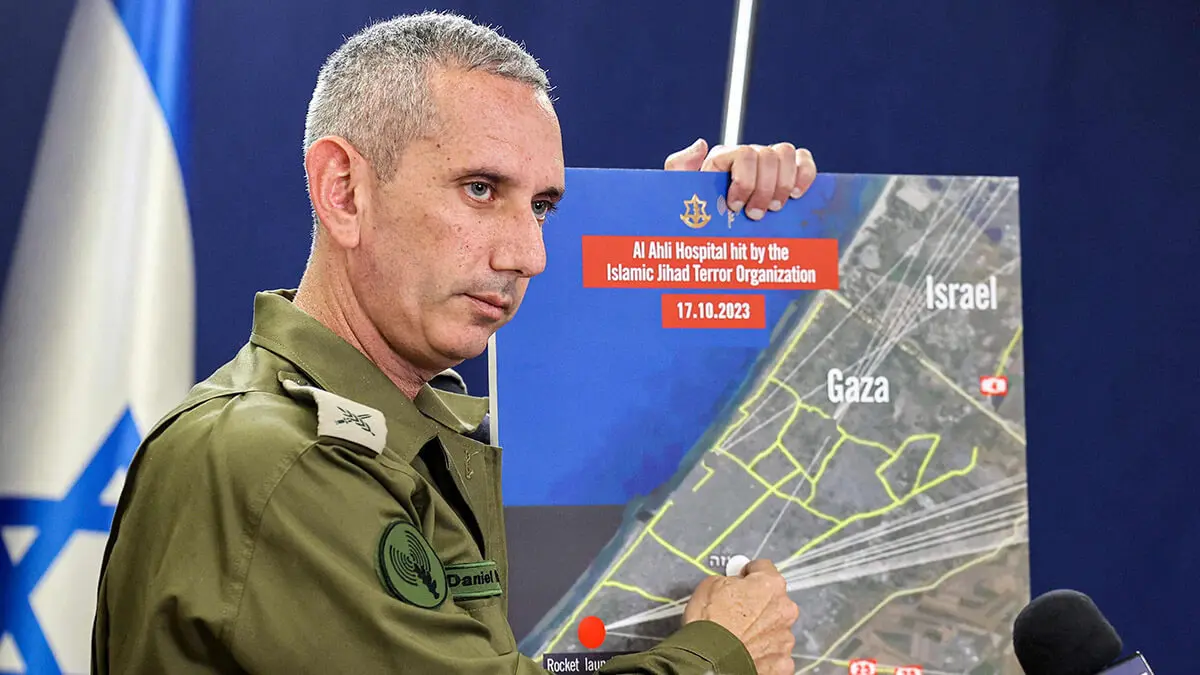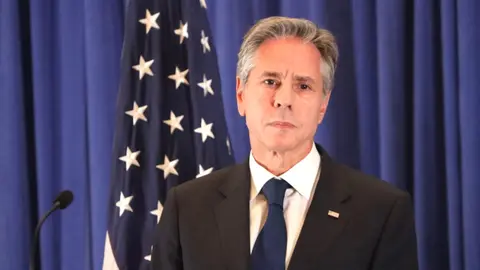Cracks and fissures in an Israel at war

Israel has entered this phase of many uncertainties, given the dragging out of its war in Gaza, which has in fact become the longest war waged by its army since the very creation of the State of Israel in 1948.
No less than the very spokesman for the Israel Defence Forces (IDF), the very temperate Rear Admiral Daniel Hagari, dared to question whether the main objective publicly declared by Benjamin Netanyahu's government in this war - to wipe out Hamas - can be achieved. "Hamas is an ideology. We cannot eliminate an ideology. To say that we are going to make it disappear is to throw smoke and fog in the eyes of the public," Hagari declared in an interview with Israel's Channel 13 television, in which he concluded in devastating fashion: "If we don't offer an alternative, in the end we will have Hamas".
So brutal did Netanyahu find this questioning that he reacted immediately with a terse but firm statement, reaffirming his intention not to conclude the war until "the government and military capabilities of Hamas are destroyed".
The Hagari controversy follows sharp disagreements between Netanyahu and centrist leader Benny Gantz over the alleged post-war plan for Gaza. The latter's alleged absence was the reason for former General Gantz's resignation from the government's war cabinet, which in turn prompted the Israeli prime minister to dissolve the cabinet. Nor was the disbanding of the cabinet a gratuitous manoeuvre because one of his most extremist ministers, Itamar Ben Gvir, had demanded that Netanyahu join the cabinet, to which the head of government responded with a more than veiled accusation against his security minister, urging him to prove that he is not the "loudmouth" who goes around divulging state secrets that significantly damage the government's united action. Ben Gvir replied by asking Netanyahu to have all ministers take a lie detector test to find out who is or are the one or ones who are actually giving free rein to the wet blanket.
In this undoubtedly tense domestic climate, also fuelled by the families of those kidnapped and still held by Hamas, the leader of the Islamist movement Hezbollah, Hassan Nasrallah, has burst in, threatening Israel with all-out war, claiming that he not only has new weapons, but also innovative intelligence capabilities within Israel itself. In apocalyptic fashion, Nasrallah warned that "no place in Israel would be spared the range of his group's missiles if its leaders carry out their threats to attack Lebanon".
Nasrallah inflamed his followers by pointing out that "we are prepared for the worst, so the enemy [Israel] must know that we will attack them by land, sea and air". The Hizbollah leader rounded off his speech by threatening Cyprus directly for the first time, stating that "we have credible information that Israel would use Cypriot airports and bases" in its intended offensive on Lebanon. This was in response to Israeli Major General Ori Gordin's statement the previous day that Israel had already approved operational plans to launch an offensive on Lebanon.
In this context, it is important to highlight the latest geopolitical analysis by Zvi Bar'el, professor at Sapir Academic College and published in Haaretz: "Israel already has proof that it cannot sustain all the wars it would like to fight, and even those it is forced to fight", the analyst states categorically. In his opinion, it has been demonstrated that "it is a balloon that we are prepared for any scenario", once it has been confirmed that it is impossible to destroy Hamas, to take Lebanon back to the Stone Age and to destroy Iran's nuclear capabilities, "while it is also unable to eliminate the terror [sown by the settlers] in the West Bank".
The paper thus considerably undercuts the euphoria about Israel's supposed invincibility, even though this is fundamentally underpinned by unquestioned and unquestioned US military aid. And the conclusion that can be drawn is rather discouraging: the Gaza war is increasingly at risk of spilling over and setting the whole region on fire - and beyond.



